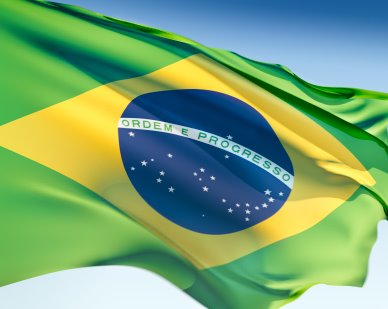Chile’s not the only South American country with a serious startup accelerator program anymore.
Brazil’s Ministry of Science, Technology and Innovation said today that it’s willing to invest up to $78 million in 100 local and foreign startups that apply for a new “Start-Up Brasil” program. The idea is to lure both domestic and foreign talent to build tech companies that cater to the Brazilian consumer market and create local jobs. They’re taking entries here.
We’re seeing more and more of these government-backed programs as policymakers try to make sure they can compete as regional tech hubs for entrepreneurs and developer talent.
Start-Up Brasil is approaching it through public-private partnerships that will put selected startups through one of nine business accelerators (which are mostly in Rio de Janeiro) for six months to a year.
They’ll also support each company with up to R$200,000 (US$98,971) for up to one year in the form of monthly grants. Private funds for each selected company can range from 20,000 Brazilian reais ($9,897) to 1 million reais (or $494,854) on top of that depending on the accelerator they’re paired up with and the company’s stage of development.
About a quarter of the winning startups can be foreign-owned, but they should plan to at least establish a long-term presence in Brazil if they’re chosen. Foreign founders will get help in getting their visas as well.
“We want to encourage entrepreneurs in the area of information technology. This area is strategically important for us to develop new business for Brazil,” said Brazil’s Minister of Science, Technology and Innovation Marco Antonio Raupp.
Felipe Matos, who created one of the country’s early incubators, Startup Farm, said while he hasn’t always been a fan of government, he felt local officials like Raupp and Virgílio Almeida, who is secretary of IT policies at the ministry, were pretty progressive about the idea. They approached him to run this project, not the other way around.
“I’m not a government guy. Even though now I’m working for the government, I used to complain about it for most of my life,” he said. “But then when I was invited, I really thought that this would be a fantastic opportunity to do something for the Brazilian startup ecosystem.”
He said the nature of entrepreneurship has changed over the last generation.
“It’s changing from necessity-based entrepreneurship, where poor people without options become entrepreneurs, to opportunity-based entrepreneurship, where educated, technically qualified people decide to become entrepreneurs over other professions,” he said.
He said over the next few years, there will be many opportunities in consumer goods through the Olympics in 2016 in Rio de Janeiro and the World Cup.
Matos said that the program is looking for entrepreneurs who are likely to stay on in Brazil either through a big local office or through their headquarters.
“While the Startup Chile program is looking to attract international startups that will stay for a while to exchange knowledge with the local community, we’re looking to attract companies that want to explore the Brazilian market and stay here,” he said.
